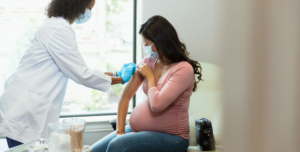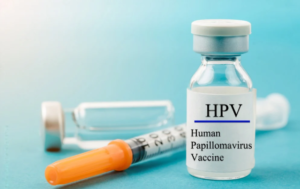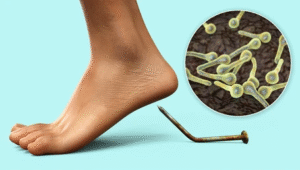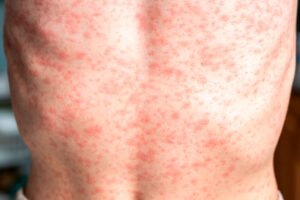Information provided by Public Health Agency of Canada
With global measles activity on the rise, Canada is at an increased risk of importing and spreading the disease among unvaccinated or under-vaccinated individuals. Although measles has been eliminated within its borders, declining vaccination rates and heightened international travel, particularly during Spring Break, pose significant challenges. Key messages from health authorities emphasize the critical importance of vaccination to protect against measles and maintain community health.
Key Messages
Risk of measles in Canada
- Although measles has been eliminated in Canada, cases can occur here when an individual who is not fully vaccinated travelled to or comes from a country where measles is circulating.
- With measles activity increasing globally and vaccination coverage rates declining in Canada, the importation of measles cases is likely and can lead to subsequent spread of measles in Canada among unvaccinated or under-vaccinated people.
- The increase in travel expected during Spring Break, particularly among children, raises the risk of additional imported cases of measles in Canada.
- Canada’s Chief Public Health Officer strongly advises everyone in Canada to be vaccinated with two doses of a measles vaccine , especially before travelling internationally.
- Measles vaccination should optimally be given at least two weeks before departure, but there are still benefits if given less than two weeks before travelling.
- As of February 23, 2024, PHAC is aware of six measles cases in Canada. Most are unvaccinated or under-vaccinated children who traveled internationally.
- PHAC is working closely with provincial, territorial and international partners to share information and monitor the situation globally and in Canada.
- As part of its commitment to the Pan American Health Organization, the Public Health Agency of Canada conducts enhanced surveillance of measles and reports weekly.

Public health messaging on measles
- The measles virus is spread very easily, primarily through the airborne route, from an infected person who breathes, talks, coughs or sneezes into a common airspace shared with others who are susceptible. The virus can remain in the air for several hours.
- Symptoms can appear 7 to 21 days after being infected with the measles virus. People can spread measles even before they know they have the infection or experience symptoms. Initial symptoms include:
- fever
- red runny eyes
- runny nose
- cough
- followed by a red rash that starts on the face and then moves to the rest of the body
- Measles can cause pneumonia as well as severe and permanent complications including deafness and brain damage resulting from inflammation of the brain (encephalitis); measles can be a fatal infection. Children less than 5 years of age, adults older than 20 years of age, pregnant people and people who are immunocompromised are at higher risk for complications from measles.
- Measles was once a common infection in Canada, but thanks to routine vaccinations it is now rare.
- People in Canada are at very low risk of catching measles if they have received two doses of a measles-containing vaccine, or if they have been infected with the measles virus in the past.
- Adults born before 1970 are generally presumed to have acquired immunity from past exposure to the measles virus, although travellers in this age group are still recommended to have received one dose of measles-containing vaccine. Travellers born in 1970 or later are recommended to have received two doses of measles-containing vaccine.
- The best protection against measles is vaccination with two doses of a measles-containing vaccine which is almost 100% effective at preventing measles infection. The measles-mumps-rubella (MMR) and measles-mumps-rubella-varicella (MMRV) vaccines have very good safety profiles.
- The first dose of a measles-containing vaccine is usually given to children when they’re 12 months old. The second dose of a measles-containing vaccine is usually given to children at 18 months of age or between 4 and 6 years of age.
- The measles vaccine is commonly provided in combination with mumps and rubella vaccine (MMR). For children less than 13 years of age, these vaccines may also be combined with the chickenpox vaccine (MMRV). Vaccination schedules may vary depending on your province or territory.
Travel health advice
- Anyone who is not protected against measles is at risk of being infected when they travel internationally.
- A level 1 (practise health precautions) travel health notice for measles is currently in place for all countries. It provides recommendations to people in Canada on how to protect themselves from measles when travelling, including making sure that their routine vaccinations, including measles, are up to date.
- Adults who will be travelling should ensure they have received two doses of measles-containing vaccine if they were born in 1970 or later, and one dose of measles-containing vaccines if born before 1970.
- Children and adolescents who are travelling should ensure that they have received both doses of measles-containing vaccines.
- Infants between 6 and less than 12 months of age should receive a dose of measles-containing vaccine if travelling to a high-risk area. These children will still need the routine two-dose series of measles-containing vaccine starting at 12 months of age.
- Before travelling, it is recommended to consult a health care provider or travel health clinic 4 to 6 weeks before travel. If a measles vaccination is required, it should optimally be received at least two weeks before departure. However, it still recommended to receive your first or second measles vaccination if they are needed, even if it is less than two weeks until you travel.
- If you believe you or your family may have been exposed to measles and have not received two doses of a measles-containing vaccine, contact your health care provider or local public health authority immediately for guidance.
- For people returning from travel abroad, if you feel sick on your journey home, put on a well-fitting respirator or medical mask if available and limit contact with others, if possible. If you are experiencing symptoms, tell a flight attendant or cruise staff before you arrive or a border services officer as you enter the country to help reduce the spread of infectious diseases in Canada.
- If you develop symptoms of measles after your return, call a health care provider immediately. Describe your symptoms, and tell them which countries you visited. If you need to be seen in person, the health care provider can arrange to see you while preventing the spread to others.
Information resources:





